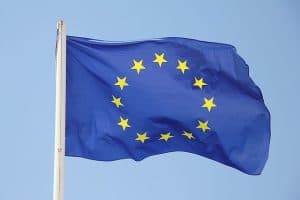Commission probes Lundbeck on alleged generic blocking
pharmafile | January 18, 2010 | News story | Sales and Marketing | European Commission, Lundbeck, generics, kroes
The European Commission has confirmed it is to investigate Lundbeck for alleged anti-competitive behaviour relating to its anti-depressant Cipramil.
The Commission’s Competition Directorate singled out Lundbeck for an immediate investigation after launching raids on a number of companies based in Europe in recent months.
The Commission said it would investigate “unilateral behaviour and agreements by Lundbeck which may hinder the entry of generic citalopram” into EU markets.
It will investigate whether the pharma company has been involved in anticompetitive agreements over the drug or misused a dominant market position.
Lundbeck said it is cooperating fully with the Commission and is confident the group has compiled with all relevant national and EU competition legislation.
The move on Lundbeck is part of a widening of the Commission’s focus on pharma that has seen a number of other companies told to submit details of their patent settlement agreements.
Reportedly sent to companies including GlaxoSmithKline, Sanofi-Aventis and AstraZeneca, the requests are part of a new ‘monitoring exercise’.
This is targeting patent settlement agreements between originator and generic pharmaceutical companies for the European Union/European Economic Area that were made between 1 July 2008 and 31 December 2009.
The monitoring exercise was launched after last year’s competition inquiry highlighted the risk that “consumers could be deprived of a broader choice of medicines at lower prices”.
Commissioner Neelie Kroes commented: “The Commission’s pharmaceutical sector inquiry points to significant shortcomings in the pharmaceutical sector.
“Patent settlements are an area of concern, not least if there are situations where an originator company pays off a generic competitor in return for delayed market entry.
“We need to monitor this type of agreement in order to better understand why, by whom and under which conditions they are concluded. The monitoring will also provide us with the possibility to act should this become necessary.”
Depending on the outcome of the exercise, the current round of information requests could become an annual feature for European pharma so long as the Commission remains concerned about its patent settlement agreements.
Related Content

Sobi’s Aspaveli receives European Commission approval for treatment of two rare kidney diseases
Sobi has announced that its Aspaveli (pegcetacoplan) has received approval from the European Commission (EC) …

European Commission approves HIV prevention injection
The European Commission (EC) has granted marketing authorisation for Gilead Science’s Yeytuo (lenacapavir), the first …

Sanofi’s Sarclisa gains EU approval for multiple myeloma treatment
Sanofi has received approval from the European Commission for the use of Sarclisa (isatuximab) in …






